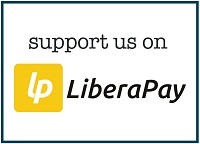Todd Hayen
There is an awful lot of “I know I’m right” chatter going around on both sides. I am just curious, what makes you so sure you are right? And what makes them so sure they are right? Unless you are Einstein or something, I’m sure you are like the rest of us and need to get most of your information from another source.
Sure, you can apply common sense and gut intuition to the information you receive from other expert sources, but I doubt if you would let Uncle Bob do surgery on your brain unless Uncle Bob is a well trained brain surgeon, “hey, let me at that tumour in there, all I need is a good pair of needle nose pliers and I’ll just pluck that nasty little bugger right out.” (Sorry, I just had to revisit Uncle Bob, the DIY Neurosurgeon.) Don’t think so.
So what makes Dr. XYZ neurosurgeon better than Dr. ABC? We don’t need to go into that here, but I am sure you get the point. (See my “sister” article “Creating a World of Distrust” to see a different angle to all of this.) There could be many factors that would make you choose one over the other, and unless you are making your choice in some third world country where the education is known to be dicey, usually your choice is based on the “best of the best,” i.e., most likely any board certified brain surgeon is going to do a good job. Most likely you are not going to diss Dr. ABC if you chose Dr. XYZ and say things like, “Dr. ABC is a complete ass, he doesn’t know a scalpel from a butter knife!” Although that IS possible, most likely that possibility is an outlier on the bell curve.
So let’s look at this idea from the perspective of Covid, pandemics, and what is going on in the world today.
Why is everybody who has made a particular stance on all of this, so damn sure they are right? More importantly, why do they insist on denigrating anyone who is not on the same side they are on? Sure, we can all rant and rave about the obviousness of our choices. But I do try to refrain from insults thrown at opposing parties. I may throw a few uglies at people I know are intentionally deceiving us, but it takes a lot to convince me that every single person in on all this is consciously malicious and evil. (Let’s see if I am proven wrong!)
When it comes to very debatable issues, such as germ theory vs terrain theory, or Covid as a reality vs Covid as a complete hoax, I think it is important to have an open mind, to some degree at least, and even if we are in a position to say, “I’ll die on that hill,” we must understand that there IS a possible argument against our stance out there, and because of that we have to recognize that perfectly intelligent and well educated people have a viable position they can take.
I am also particularly dismayed by folks who will wipe away any accomplishment some people have made in this fight, people like Robert Kennedy Jr., or Del Bigtree with ICAN, or Dr. Robert Malone, because they have been inconsistent in their allegiances, maybe at times implying they “believe in viruses” or “believe there was a pandemic of sorts” or “believe some vaccines could be helpful.”
Sure, some of these positions fly in the face of a lot of things we hold as fact. But I do not think it is prudent to dismiss all of the work they have done in the name of truth. It sometimes makes me wonder if people that denigrate these people are actually working for the “other side” (controlled opposition?) in an effort to discredit some of the most powerful, and dedicated, among us.
Going back to the question, “who do you believe and why?” Let’s take the germ vs terrain theory as an example.
The germ theory has been around a very long while. So has the terrain theory, just as long actually because it began as a disagreement between two leading scientists back in the late 19th century, Louis Pasteur with his germ theory, and Antoine Béchamp with terrain theory. Needless to say, Pasteur won the popular debate and now modern medicine revolves around the theory that germs cause disease and disease is transmitted person to person.
The debate really never ended and still rages on to this day. This article will not concern itself with which theory is correct (although I am pretty certain where most of you, including me, stand). The point here is why do people believe one and not the other? If you were a scientist directly studying these two theories, you would be in a better position to argue either point. But if you are not a scientist, and are relying on the research of other scientists, then of course you are at a disadvantage. There are several other criteria you would have to rely on to determine, for yourself, which horse you are going to lay your money on.
This is a challenge we are all faced with everyday: if we do not do our own scientific experimentation, and our general lack of specific knowledge, or even the intelligence, to make our own empirical evaluation of opposing ideas, how do we do it? Well, a large part of it is relying on “what makes sense to us” when either theory is explained. But of course, again, if we are not scientists we really can’t put too much weight in a rather subjective evaluation.
We might know something about science, and might do extensive research, therefore our choice could have some objective veracity to it. But then again, we can never be thoroughly certain. Even accomplished scientists have a difficult time discerning truth from theory. And in fact, this “uncertainty” is the essence of scientific debate. If the best scientists in the world are still open to discussion and debate about opposing theories, then how can we close off a decision of one over the other to further scrutiny?
I am not suggesting that only the scientist experts know the answer. That is far from what I am suggesting, I am only saying what any of us “find out” is subject to debate. I only think we should stay aware of the very thing we are fighting for: freedom to express all ideas.
I certainly weigh in other criteria in determining which side of an argument I stand on, as I am sure most of you do. I generally will pay a lot of attention to the underdog theory because those touting it have nothing to lose, whereas the established “truth” has a lot to lose if it fails deeper scrutiny. Certainly if there is money behind one theory and not the other one, I tend to pay more attention to the money-poor theory before rooting for the bottomless pockets. But neither of these criteria are iron clad, of course, so other factors have to be integrated into the debate before I can back either horse in the race.
Once all that can be considered within our limited ability to understand all things considered, a choice is made. But the other choice is always sitting by the wayside, ready to reveal more information that may, or may not, make it more compelling. I see all too often a radical, and often dogmatic, rejection of the opposing argument with no consideration regarding the possibility we don’t have it 100% in the bag. Isn’t this the very thing we are fighting for?—the allowance, and tolerance, for debate and discussion?
There are a lot of things I would stake my life on being correct—that I have made the right choice regarding which theory to stand behind. But I hope that I would not be one to ever attack the other side with vitriol and accusation, calling whoever believes in the opposition a liar (some are, I know, but not all). I don’t think it works that way. Liars are consciously malicious and deceitful.
A person who has decided on differing perspectives from the mainstream, or differing perspectives from the alternate challenging position, are not always liars, but many are fellow searchers of truth, and should be treated as such—with respect and regard. They may be misguided, and they may need more information, but they are not always the enemy.




